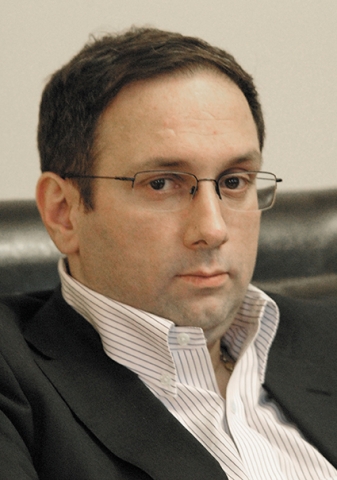10 Cult Films. American Cinema Retrospective at Presidential Library
Many groundbreaking films of the 20th century failed to reach the Georgian cinema audience due to the censorship of the Soviet era. Only film experts and a number of the privileged had better access to them. Censorship is long gone but that hasn’t changed much and the few-and-far-between short-lived TV programs about cinema have been unable to fill the gap in the Georgian audience’s knowledge of cult films.
With high hopes to help remedy this, the Saakashvili Presidential Library has been hosting a pilot project ‘10 Cult Films – American Cinema Retrospective,’ offering movie lovers a free screening of 10 American films which gained international acclaim and recognition.
The ‘10 Cult Films’ project was initiated by Nika Rurua, former Georgian Minister of Culture. As TV directing is his first profession, Rurua has a long list of great films and directors which he wishes to familiarize the Georgian audience with.
“Cinema has accumulated a great heritage, part of which we had to omit because of the censorship in the Soviet era,” Rurua told GEORGIA TODAY. “I think that every modern person should have a film education. Film education is as important as literary education. Fewer art-house films are made today. Nowadays, commercialization is damaging cinema as an art genre. Wanting to fill this vacuum, I thought this pilot project would be a great idea in terms of film education. And the best venue would be a library which people are already comfortable visiting,” he said.
Rurua chose 10 films from directors who were not favored by the Soviet censors and whose names have remained unknown to the majority of Georgians young film lovers.
What the films have in common is that they are all non-commercial art-house films, which in their time became so sensational that they gained commercial success. The themes are diverse, none of them ideological, dealing with issues such as racism, class alienation, teenagers, heterosexual relationships, isolation which accompanies urban life, and more.
“Only film connoisseurs know the names of Orson Welles, Hal Ashby, Bob Rafelson, Robert Altman, Sidney Lumet, John Huston, John Cassavetes, and Peter Bogdanovich,” Rurua said. “The general Georgian movie-goers are less familiar with them, and yet these directors created important cultural products, films that touched on a lot of issues, with great actors in them, such as Jack Nicholson, John Cassavetes himself, Peter Sellers, Al Pacino and so many others.
“Belye Stolbi, a film fund in Moscow, allowed closed film screenings only for film specialists, directors, screen writers and film critics. The Ministry of Culture of the time thought it necessary for those working in film production to know what was being made in the West in order to develop Soviet cinema. But these screenings were closed to the general public,” Rurua said, adding that he was lucky enough to get an opportunity to attend such screenings and had seen all the 10 films [of his project] at a time they were not otherwise accessible.
He expressed disappointment that there are no separate movie theatres for art-house films [in Tbilisi], where people can go and see film classics; also at the inability of Georgian television to show these films because they simply don’t know about them.
“It would be great in the future if City Hall established an experimental movie theatre where film classics would be shown. Film lovers would go and learn about films they wouldn’t usually watch anywhere else. I want film education to be considered as an important part of education and for people to see the great heritage created by American cinema in the 1950s, 60s and 70s, American cult films which are unknown to most of us,” Rurua said.
The Saakashvili Presidential Library has already hosted two screenings: Network (1976) by Sidney Lumet, and Carnal Knowledge (1971) by Mike Nichols. The films are presented by Nika Rurua every Thursday at 7pm.
Ana Akhalaia











